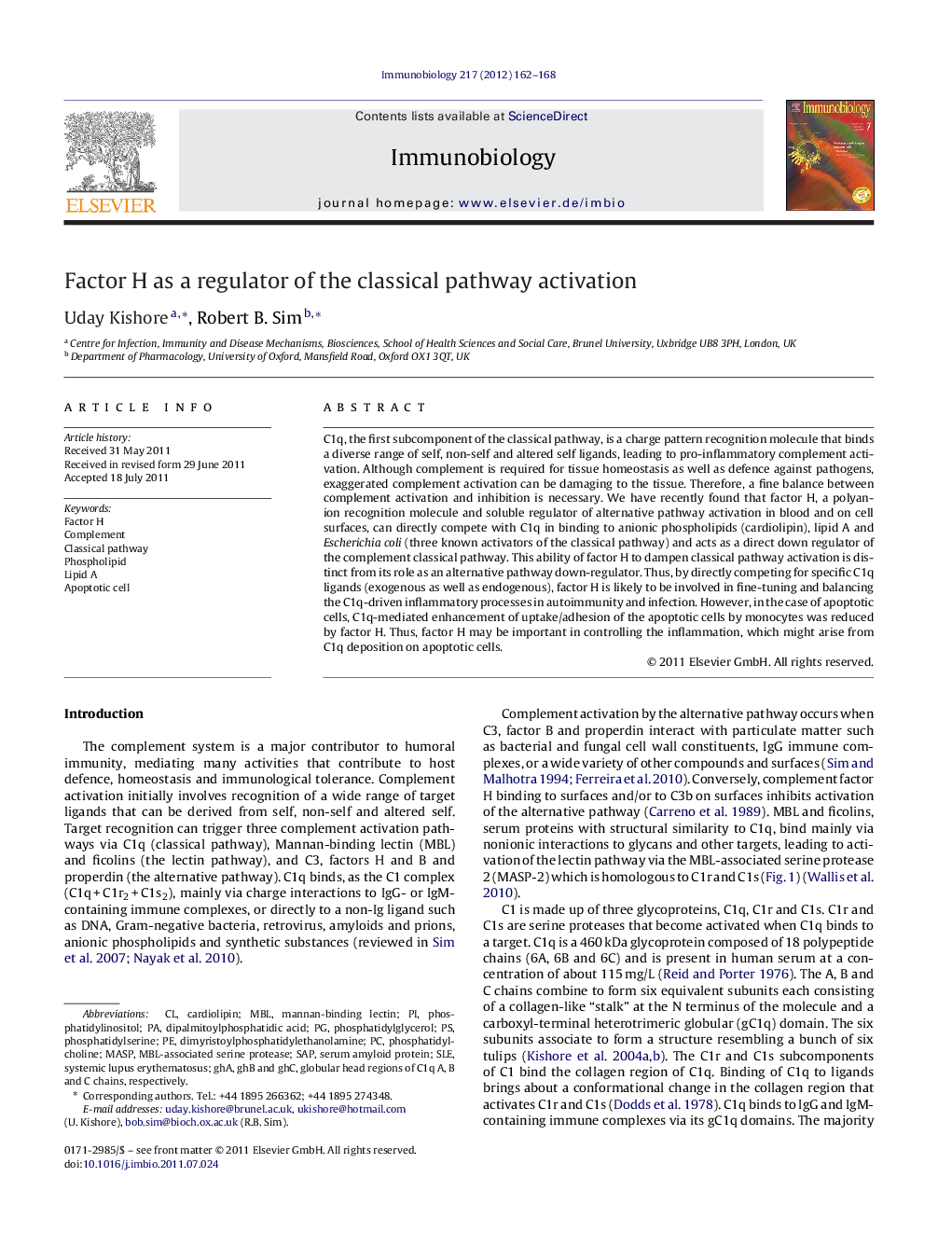| کد مقاله | کد نشریه | سال انتشار | مقاله انگلیسی | نسخه تمام متن |
|---|---|---|---|---|
| 10941090 | 1095594 | 2012 | 7 صفحه PDF | دانلود رایگان |
عنوان انگلیسی مقاله ISI
Factor H as a regulator of the classical pathway activation
دانلود مقاله + سفارش ترجمه
دانلود مقاله ISI انگلیسی
رایگان برای ایرانیان
کلمات کلیدی
dimyristoylphosphatidylethanolamineMBLMASPdipalmitoylphosphatidic acid - اسید دیپالمیتویل فسفاتیدیکapoptotic cell - سلول آپوپتوزیSAP - شیرهFactor H - فاکتور Hphosphatidylinositol - فسفاتیدیل اینوزیتولphosphatidylcholine - فسفاتیدیل کولینphosphatidylglycerol - فسفاتیدیل گلیسرولPhosphatidylserine - فسفاتیدیلسرینPhospholipid - فسفولیپیدSystemic lupus erythematosus - لوپوس اریتماتوی سیستمیکSLE - لوپوس منتشر یا لوپوس اریتماتوس سیستمیکMannan-binding lectin - لکتین اتصال دهنده مانانLipid A - لیپید AComplement - متممclassical pathway - مسیر کلاسیکMBL-associated serine protease - پروتئاز serine مرتبط با MBLserum amyloid protein - پروتئین آمیلوئید سرمCardiolipin - کاردیولیپین
موضوعات مرتبط
علوم زیستی و بیوفناوری
بیوشیمی، ژنتیک و زیست شناسی مولکولی
بیولوژی سلول
پیش نمایش صفحه اول مقاله

چکیده انگلیسی
C1q, the first subcomponent of the classical pathway, is a charge pattern recognition molecule that binds a diverse range of self, non-self and altered self ligands, leading to pro-inflammatory complement activation. Although complement is required for tissue homeostasis as well as defence against pathogens, exaggerated complement activation can be damaging to the tissue. Therefore, a fine balance between complement activation and inhibition is necessary. We have recently found that factor H, a polyanion recognition molecule and soluble regulator of alternative pathway activation in blood and on cell surfaces, can directly compete with C1q in binding to anionic phospholipids (cardiolipin), lipid A and Escherichia coli (three known activators of the classical pathway) and acts as a direct down regulator of the complement classical pathway. This ability of factor H to dampen classical pathway activation is distinct from its role as an alternative pathway down-regulator. Thus, by directly competing for specific C1q ligands (exogenous as well as endogenous), factor H is likely to be involved in fine-tuning and balancing the C1q-driven inflammatory processes in autoimmunity and infection. However, in the case of apoptotic cells, C1q-mediated enhancement of uptake/adhesion of the apoptotic cells by monocytes was reduced by factor H. Thus, factor H may be important in controlling the inflammation, which might arise from C1q deposition on apoptotic cells.
ناشر
Database: Elsevier - ScienceDirect (ساینس دایرکت)
Journal: Immunobiology - Volume 217, Issue 2, February 2012, Pages 162-168
Journal: Immunobiology - Volume 217, Issue 2, February 2012, Pages 162-168
نویسندگان
Uday Kishore, Robert B. Sim,